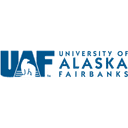This course is part of Understanding and Operationalizing One Health.
This comprehensive course examines the interconnected nature of human, animal, and environmental health through the One Health paradigm. Using the Arctic as a case study, where climate change impacts are accelerating at twice the global rate, students learn how ecosystems adapt and change. The course integrates traditional Indigenous knowledge with Western science to address complex challenges like zoonotic diseases, food security, and climate change. Students explore how this holistic approach can lead to sustainable solutions for global health challenges, emphasizing the importance of cross-disciplinary collaboration and cultural perspectives.
Instructors:
English
English
What you'll learn
Understand the fundamental principles of One Health
Identify connections between human, animal, and environmental health
Apply One Health concepts to real-world challenges
Explore traditional and Western scientific approaches
Analyze climate change impacts through One Health lens
Understand zoonotic disease emergence and prevention
Skills you'll gain
This course includes:
PreRecorded video
Graded assignments, Exams
Access on Mobile, Tablet, Desktop
Limited Access access
Shareable certificate
Closed caption
Get a Completion Certificate
Share your certificate with prospective employers and your professional network on LinkedIn.
Created by
Provided by

Top companies offer this course to their employees
Top companies provide this course to enhance their employees' skills, ensuring they excel in handling complex projects and drive organizational success.





There are 4 modules in this course
This course explores the One Health concept, which recognizes the interconnected nature of human, animal, and environmental health. Students learn about the historical development of One Health, its applications in understanding zoonotic diseases like COVID-19, and its role in addressing climate change impacts. The curriculum covers ecosystem relationships, traditional knowledge integration, and collaborative approaches to solving complex health challenges. Special attention is given to Arctic examples while maintaining global relevance.
One Health Overview
Module 1
Human Health and Animal Health
Module 2
Environmental Health - Our Role in the Ecosystem
Module 3
Social Sciences in One Health
Module 4
Fee Structure
Individual course purchase is not available - to enroll in this course with a certificate, you need to purchase the complete Professional Certificate Course. For enrollment and detailed fee structure, visit the following: Understanding and Operationalizing One Health
Instructors

6 Courses
A Pioneering Leader in Veterinary Nutrition and One Health Research
Arleigh Reynolds serves as Director of the Center for One Health Research at the University of Alaska Fairbanks, where he has established himself as a world-renowned expert in sled dog nutrition and exercise physiology. After earning his DVM and PhD from Cornell University, he has built an extraordinary career combining veterinary medicine with championship-level dog mushing. His groundbreaking research in sled dog nutrition revolutionized understanding of performance dog dietary needs, particularly demonstrating the importance of high-protein diets for dogs undergoing rigorous training. As a three-time world champion sled dog racer, he brings unique practical insights to his academic work, which spans clinical nutrition, exercise physiology, and metabolic diseases in domestic animals. Through his leadership of UAF's One Health initiative, he champions interdisciplinary approaches to addressing complex health challenges in the circumpolar North, focusing on the interconnections between human, animal, and environmental health. Recently appointed as Executive Director of the Sitka Sound Science Center, he continues to advance community-based participatory research while maintaining his commitment to improving health outcomes in rural Alaska through culturally sensitive, integrative approaches that incorporate traditional knowledge.

6 Courses
A Distinguished Leader in One Health Education and Research Coordination
Hannah Robinson serves as Master's Coordinator at the University of Alaska Fairbanks Center for One Health Research (COHR) and Research Advising and Mentoring Professional (RAMP) at UAF BLaST. After earning her BS in Chemistry with a Biology minor from Bethel University and MPH from the University of Tennessee Knoxville, she has built a career bridging public health with interdisciplinary science communication. As a key member of the COHR team, she helped organize the 2021 One Health One Future international conference, which brought together over 600 participants from 35 countries to discuss critical health issues facing the circumpolar north. Her role includes coordinating the Master's program, providing student support, and facilitating communication between community members and experts across disciplines. Through her position at COHR, she contributes to the development of One Health education programs and recently obtained certification in the One Health Systems Mapping and Analysis Resource Toolkit. Her diverse background in physical sciences, biological sciences, and public health enables her to effectively support interdisciplinary collaboration while advancing understanding of social determinants of health and maternal-child health outcomes.
Testimonials
Testimonials and success stories are a testament to the quality of this program and its impact on your career and learning journey. Be the first to help others make an informed decision by sharing your review of the course.
Frequently asked questions
Below are some of the most commonly asked questions about this course. We aim to provide clear and concise answers to help you better understand the course content, structure, and any other relevant information. If you have any additional questions or if your question is not listed here, please don't hesitate to reach out to our support team for further assistance.



